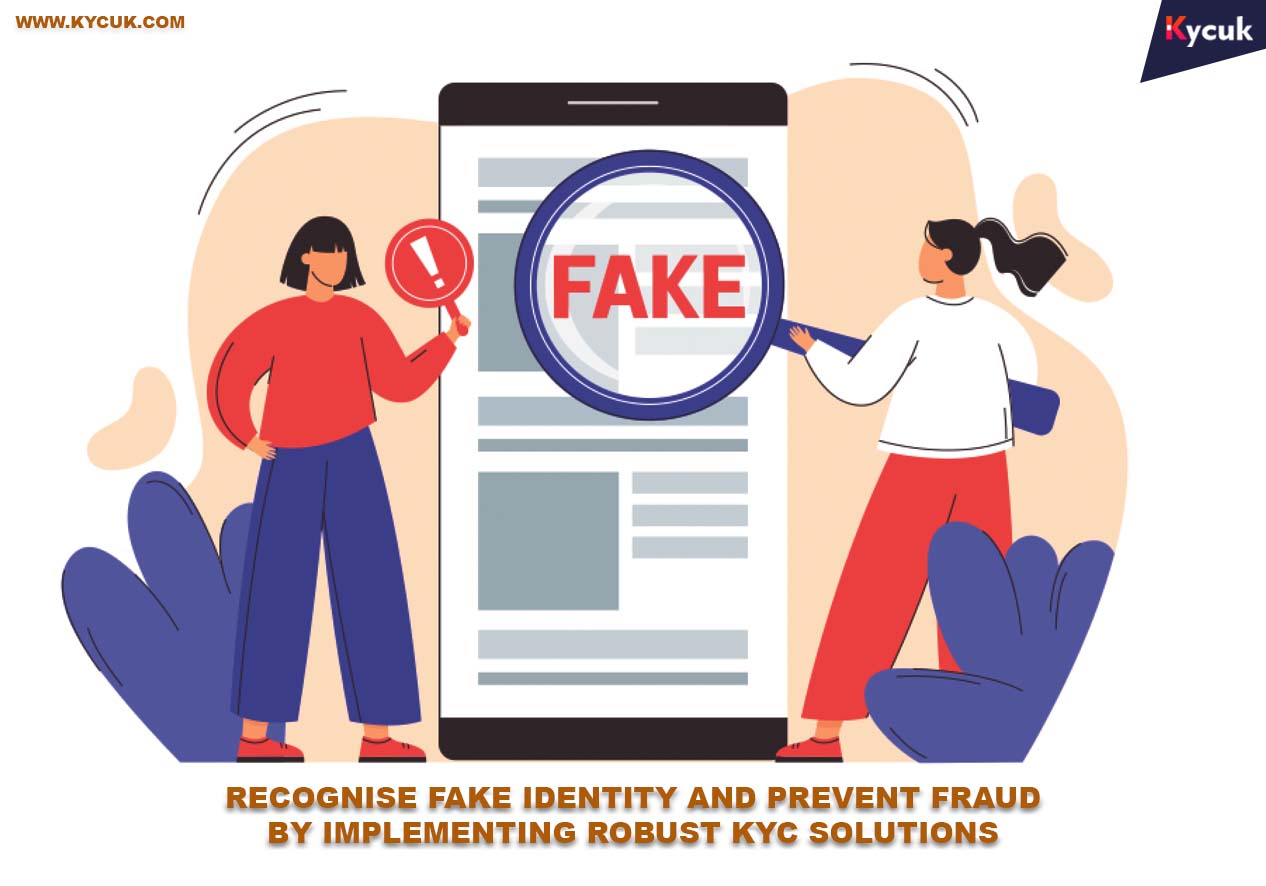With the increasing digital transactions in the UK market, businesses face a growing threat from identity fraud. It is becoming a challenge for every small, medium, and large size company to deal with it along with the UK regulations. Fraudsters and money launderers keep targeting vulnerable businesses in the UK to commit financial fraud by using fake identities and documents. The UK government has strict laws and regulations against people who are involved in money laundering, terrorist financing, identity fraud, illicit funding, and illegal activities.

The Growing Threat of Identity Fraud in the UK:
Identity fraud in the UK has surged in recent years. According to a report by CIFAS, 34% of identity fraud attempts increased in 2023 compared to the previous year. And most of these attempts were related to the fake identity documents. It happened just because of the weak verification processes during their security check. The use of fake identities also increased by nearly 44% in the first half of 2023, as per the report by Experian. People also use deepfake technology to generate phony ID documents, images, videos, and voice clips to do financial fraud and other fake news. Therefore, it becomes more challenging for businesses to differentiate between legitimate and fraudulent clients.
It is the exact scenario where identity verification solutions play a crucial role in identifying fake identities and helping to ensure real identities for secure business in the UK. Identity verification solution providers authenticate business identities for safe transactions. Companies and organizations that are operating their businesses in the UK and don’t have a robust identity verification system to authenticate the identity of their new clients while onboarding them then may have to face several issues for their business, as they are:
Reputational Damage:
Fraudsters use fake identities to commit fraud, and once the name is attached to any money laundering activities, then it will also harm the reputation of the business. Companies that are handling their businesses worldwide may have to face business loss due to name involvement in money laundering activities. UK regulations are strict against money laundering and terrorist financing, so any illegal activity involvement may not allow for smooth business operations. Therefore, identity verification is paramount for financial and non-financial businesses to be fraud-free business and avoid reputation damage in the UK market.
Financial Loss:
Money launderers and financial criminals always target vulnerable businesses or new business startups that don’t have an identity verification system to check the identity of new clients, vendors, and investors. As a result have to face financial loss that sometimes may not be recoverable.
Regulatory Penalties:
For smooth business operations in the UK, adhering to regulatory compliance is mandatory. Companies that don’t have the KYC and AML compliance software then may have to face the regulatory’s heavy fines for non-compliance.
Trust Issue:
Without identity verification, businesses face financial fraud, and, as a result, their bad reputation impacts the trust of new clients, vendors, and investors. So this is the biggest reason why a business fails to gain trust to attract new business clients.
How do Identity Verification Solutions help in Fraud Prevention?
Identity verification solutions help in business client authentication and ensure clients are who they say they are. It mitigates identity fraud and assists in recognising the fake identity. Comprehensive identity verification includes KYC and AML verification processes that ensure the complete complete background check of the new client during the onboarding process.
- KYC Verification assists in authenticating the identity of the customer through various ID documents like driving license, passport, Government ID card, and utility bills. It ensures genuine identities for secure business and prevents identity fraud. As a result, it mitigates the risk of financial fraud.
- AML verification helps check the background of the client, whether the client is associated with money laundering, terrorist financing, illicit financing, tax evasion, and illegal activities like a criminal record. Identity checks through various adverse media databases, PEP, sanctions, and watchlists to check the background of the client.
Both identity verification methods play a significant role in recognising fake identities and fraud prevention for banks, financial institutes, cryptocurrency, insurance, fintech, trading, forex, and other financial businesses in the UK. Non-financial businesses like online gaming, travel, healthcare, telecommunication, education, logistics, real estate, transport, and others also prefer identity verification solutions to identify genuine identities.
Conclusion:
Identity verification solution is a business need that will help secure business transactions and protect businesses from fraudsters, money launderers, and financial criminals in the digital world of the UK. Therefore, choose a reliable and trusted UK KYC provider that provides complete identity verification solutions according to the business needs. It helps to authenticate identities quickly and securely, ensuring seamless client onboarding along with smooth business operations. It builds trust for new investors, clients, and vendors by ensuring fraud-accessible business reputation in the UK Market. Automated identity verification solutions keep businesses ahead of the curve in competition and add an extra layer of protection. AI and machine learning algorithm-based technology assist in identifying the uncommon pattern of transactions related to money laundering and preventing financial fraud.

